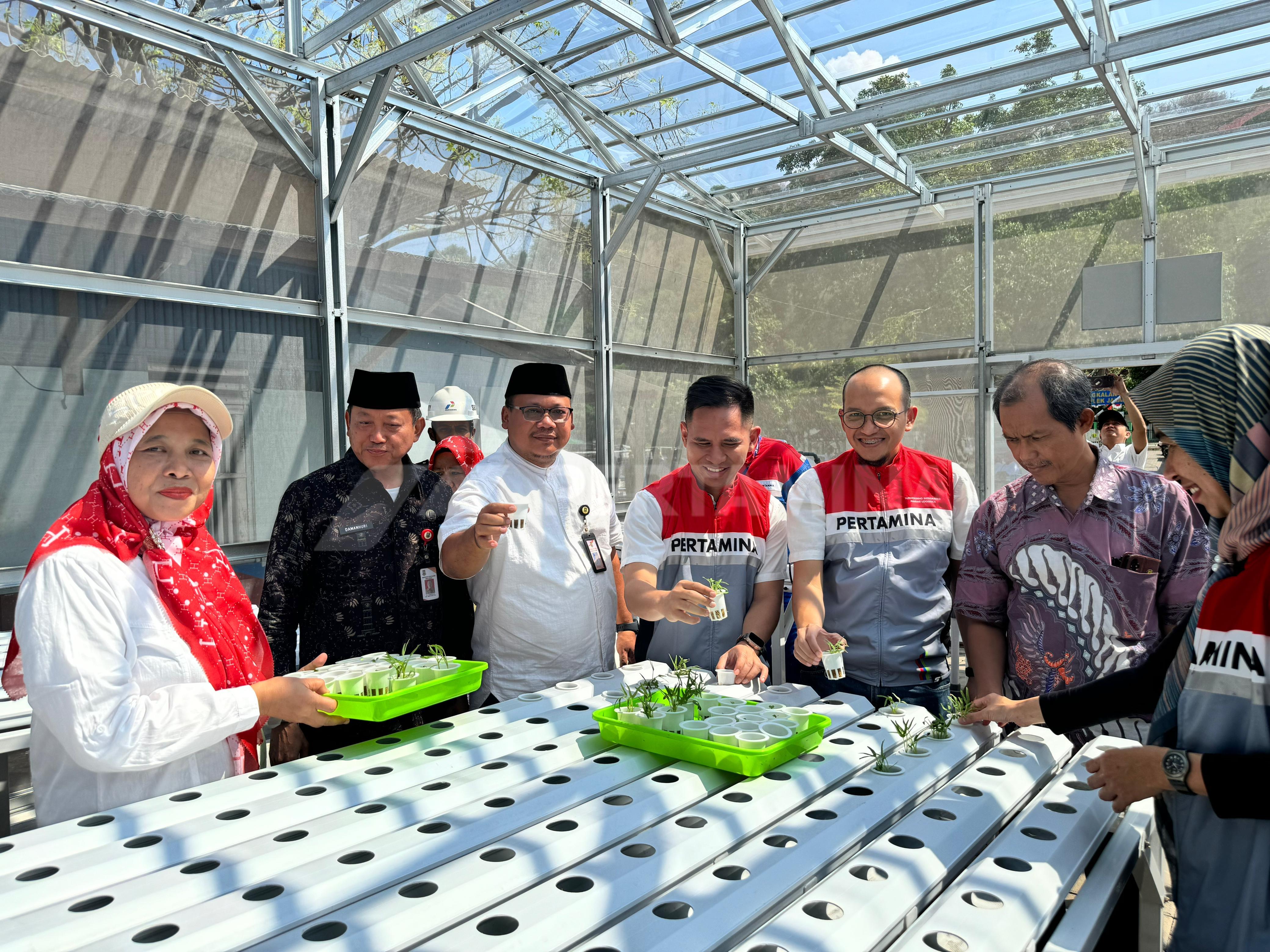
Thanks to Pertamina’s Desa Energi Berdikari Program, the Women Farmers Group of Lebak Gede Achieves Food and Energy Resilience
Jakarta, November 9, 2024 – PT Pertamina (Persero) continues to enhance its contribution to the community's economy. Through its Environmental and Social Responsibility (TJSL) program, Pertamina develops various community development initiatives in the energy transition sector to promote energy resilience in society.
One such initiative is through PT Pertamina Energy Terminal (PET) – Tanjung Sekong LPG Terminal, part of the Integrated Marine Logistics Sub-holding. Pertamina has been educating community groups under the Desa Energi Berdikari (DEB/Independent Energy Village) Climate Program in RW 06, Lebak Gede Village, Pulomerak District, Cilegon City.
This sustainable program includes installing a 4.4 kWp solar panel system with a 5 kWh battery capacity. The hydroponic house operation, managed by the “Pemuda Berani Inovasi” youth group in RW 06 in collaboration with the Wahid Sapa Women Farmers Group (KWT), is a central activity of the program. KWT’s goal, known as the Food Awareness Program, enables the group to produce 40-50 kg of hydroponic vegetables per harvest.
The Head of the Cilegon City Social Service, Drs. H. Damanhuri, M.Si, highly appreciates the TJSL Program. “This program is excellent for driving the economy and fostering creativity in food awareness, especially for residents. We hope it can be replicated in other areas to promote economic equity,” said Damanhuri.
Similarly, Pulomerak District Head, Ade Heru Sanjaya, welcomed the program positively. “This demonstrates the effective synergy and collaboration between local governments, communities, and businesses. Hopefully, this initiative will create a multiplier effect, not just for the RW 06 residents but also for surrounding areas,” Ade explained.
Vice President of Corporate Communication of Pertamina, Fadjar Djoko Santoso, expressed appreciation for all parties involved. In the DEB program in Lebak Gede, Pertamina not only promotes energy self-sufficiency by installing clean energy infrastructure but also educates the community on clean energy management, optimizing its benefits for economic development. This hydroponic vegetable farming focus in this program also contributes to maintaining food security for the community.
“We hope Pertamina’s initiative will be a concrete step towards achieving household food independence and resilience. By utilizing transitional energy, this activity also drives the village economy, enabling communities and their environments to grow healthier and more prosperous,” said Fadjar.
Pertamina continues to expand clean energy utilization in rural areas through the Independent Energy Village Program (DEB). This initiative aligns with the Sustainable Development Goals (SDGs), specifically Goal 2 (Zero Hunger), Goal 7 (Affordable and Clean Energy), and Goal 13 (Climate Action). Additionally, it plays a crucial role in reducing emissions, with the DEB program estimated to lower carbon emissions by 729,127 tons of CO2 equivalent annually.
Pertamina, as a leading company in the energy transition, is committed to supporting the Net Zero Emission 2060 target by continuously promoting programs that directly impact the Sustainable Development Goals (SDGs) achievement. All these efforts align with Environmental, Social & Governance (ESG) implementation across all Pertamina's business lines and operations.**